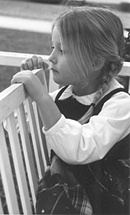All Nonfiction
- Bullying
- Books
- Academic
- Author Interviews
- Celebrity interviews
- College Articles
- College Essays
- Educator of the Year
- Heroes
- Interviews
- Memoir
- Personal Experience
- Sports
- Travel & Culture
All Opinions
- Bullying
- Current Events / Politics
- Discrimination
- Drugs / Alcohol / Smoking
- Entertainment / Celebrities
- Environment
- Love / Relationships
- Movies / Music / TV
- Pop Culture / Trends
- School / College
- Social Issues / Civics
- Spirituality / Religion
- Sports / Hobbies
All Hot Topics
- Bullying
- Community Service
- Environment
- Health
- Letters to the Editor
- Pride & Prejudice
- What Matters
- Back
Summer Guide
- Program Links
- Program Reviews
- Back
College Guide
- College Links
- College Reviews
- College Essays
- College Articles
- Back
The Endless Steppe by Esther Hautzig
Reading about Esther's daily routine and her fastidious behaviours--such as only having a soft buttered roll and a cup of hot cocoa for breakfast ("any attempt to alter this menu I regarded a plot to poison me") and her gardening rituals (the book starts with the one detail Esther remembers about the day she was hived off to Siberia--that she did not water the lilac bush), one may curiously wonder how this stubborn little girl could ever cope with the harsh realities of Siberia as a Polish deportee, how she would ever face the fact that her affluent lifestyle would probably never come back to her again.
But Esther does a lot more than "cope" with the unfair situation she is faced with. We see that she is ever the optimist and stubborn is this aspect she is; nothing can break her spirit. We see her adapt to changing conditions--once so particular about never having her breakfast menu altered, Esther proudly toils in the sun and does her part well as a slave labourer in Siberia, is ecstatic about the weekly visits to the village market(baracholka) of Rubstovsk that the labourers are allowed and dearly cherishes simple joys like muching on the universally loved roasted sunflower seeds like any other Sibiriyak.
We see Esther making sacrifices--like cutting off her long hair to acquire a best friend, which she disguises as her vanity, not making known what a sacrifice it was. These little relinquishments, so big for a child are indeed heart-rending to the reader. The reader is warmed by the way how obstinately it is, in fact, the way Esther does her best to live and enjoy life normally, if not even more so than she did previously, by way of studying hard and earning a name for herself--proving to Raisa Nikitovna her determination to succeed and eventually earning the disapproving mistress' reluctant respect, by way of trying to do the little she could in providing for her family by knitting and trying to enjoy little pleasures that would seem almost impossible to attain such as going to the movies and looking forward to one day, owning a green-quilted fufaika.
There is also dark irony--the Soviet-style communism, designed to provide equal status to everyone, Esther bitterly notes, even as a child is as unfair as any other system, when she longs to borrow an outfit from a nearby theater troupe for her upcoming prom, but is denied--the honour instead being bestowed upon the daughter of a powerful military commander who studies in her school and is her rival for the affections of the handsome Yuri.
You really feel for Esther, the way she comes to love the barren Steppe she once feared, due to its unfamiliarity and the way she thinks of herself as a proud Sibiriyak, and how she is unwilling to return to Poland despite dire poverty in Siberia, despite being bereft of everything and at the same time empathize with her mother's shock and disbelief at this. This also raises important questions of what it means to belong somewhere. Is it where you're born, where your parents are from, where you live and so on.
I think this book really is an amazing read. It inspires you in a quiet sort of way, where you admire Esther's stubborn optimism and quiet courage, but also see yourself in her, maybe not as you are, but as you could be.

Similar Articles
JOIN THE DISCUSSION
This article has 0 comments.

It's my favourite book. But only because I read it last. ;)